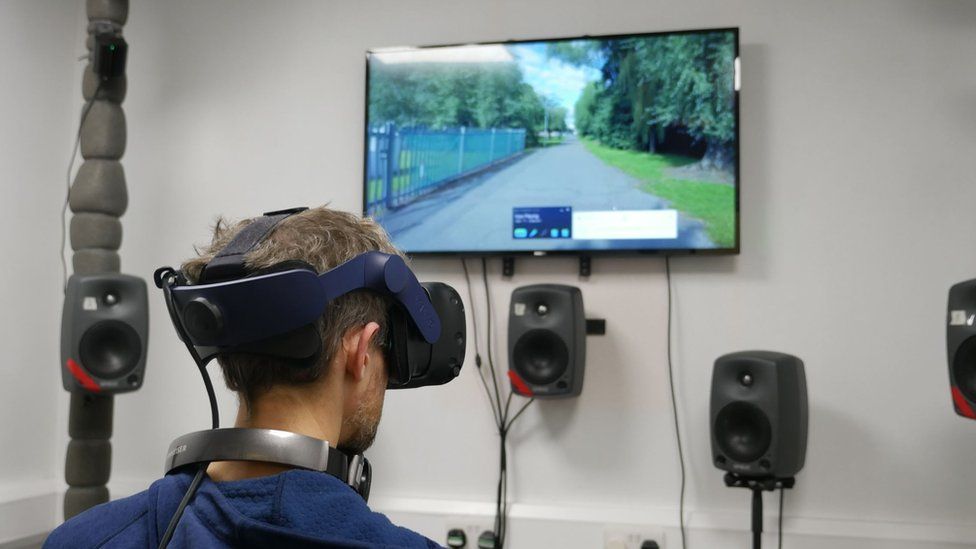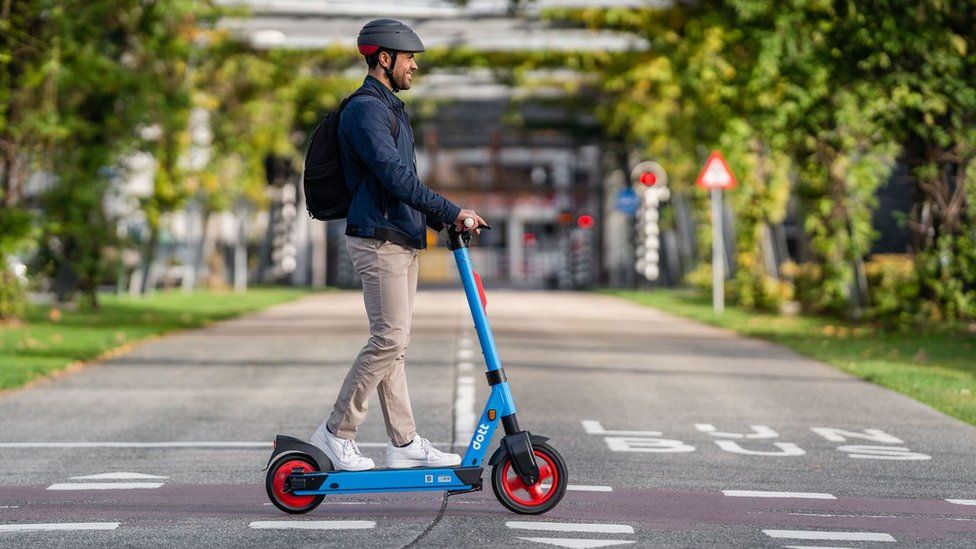
A set of industry standard sounds for e-scooters are being tested in a bid to help cut the number of crashes.
There are concerns the virtually silent motors of e-scooters can make them dangerous for pedestrians.
Researchers at the University of Salford have developed the sounds to help people be alerted to the vehicles.
Dr Antonio Torija Martinez, from the university said it was a balance between "maximum vehicle noticeability and minimum noise pollution".
Department for Transport figures show one pedestrian was killed and a further 62 were seriously injured in collisions with e-scooters in Britain during the 12 months to the end of June. A further 180 suffered minor injuries.
Robin Spinks of the Royal National Institute of Blind People said it can be "terrifying" for blind or partially sighted people when electric vehicles were used "irresponsibly".
The tests, in partnership with the charity, will see people including some who are blind or partially sighted wear a virtual reality headset to immerse them into simulations involving e-scooters emitting three sounds.
E-scooters

- There is not currently a specific law for e-scooters, they are recognised as "powered transporters"
- Powered transporters fall under the same laws and regulations as motor vehicles, and subject to all the same legal requirements including MOT, tax, licensing and specific construction
- The only e-scooters that can be used on public roads are those that are rented as part of government-backed trials
- To use an e-scooter from an official trial, you need to have category Q entitlement on your driving licence
- Cycle helmets are recommended, but not legally required
- Private e-scooters can only be used on private land and not on public roads, cycle lanes or pavements.
They will be asked to identify when they are first aware of the e-scooter and provide feedback on the suitability of the sounds.
"Using virtual reality to create immersive and realistic scenarios in a safe and controlled laboratory environment will allow us to achieve robust results," Dr Torija Martinez said.
"By working closely with the RNIB and blind associations across Europe, we can ensure that the sound we develop is the best fit for their needs."
The tests are in partnership with micro-mobility company Dott and will be repeated in Italy, Sweden and Spain, before trials take place on public roads.
Dott chief executive Henri Moissinac said while electric vehicles were providing transport "free from both air and noise pollution" it was "important that our vehicles not only work for our users but are respectful to all other city residents".
"The development of an industry standard e-scooter sound, which can be detected by those that need it but without being intrusive, could greatly improve the experience for some of the most vulnerable road users," he said.
From BBC
